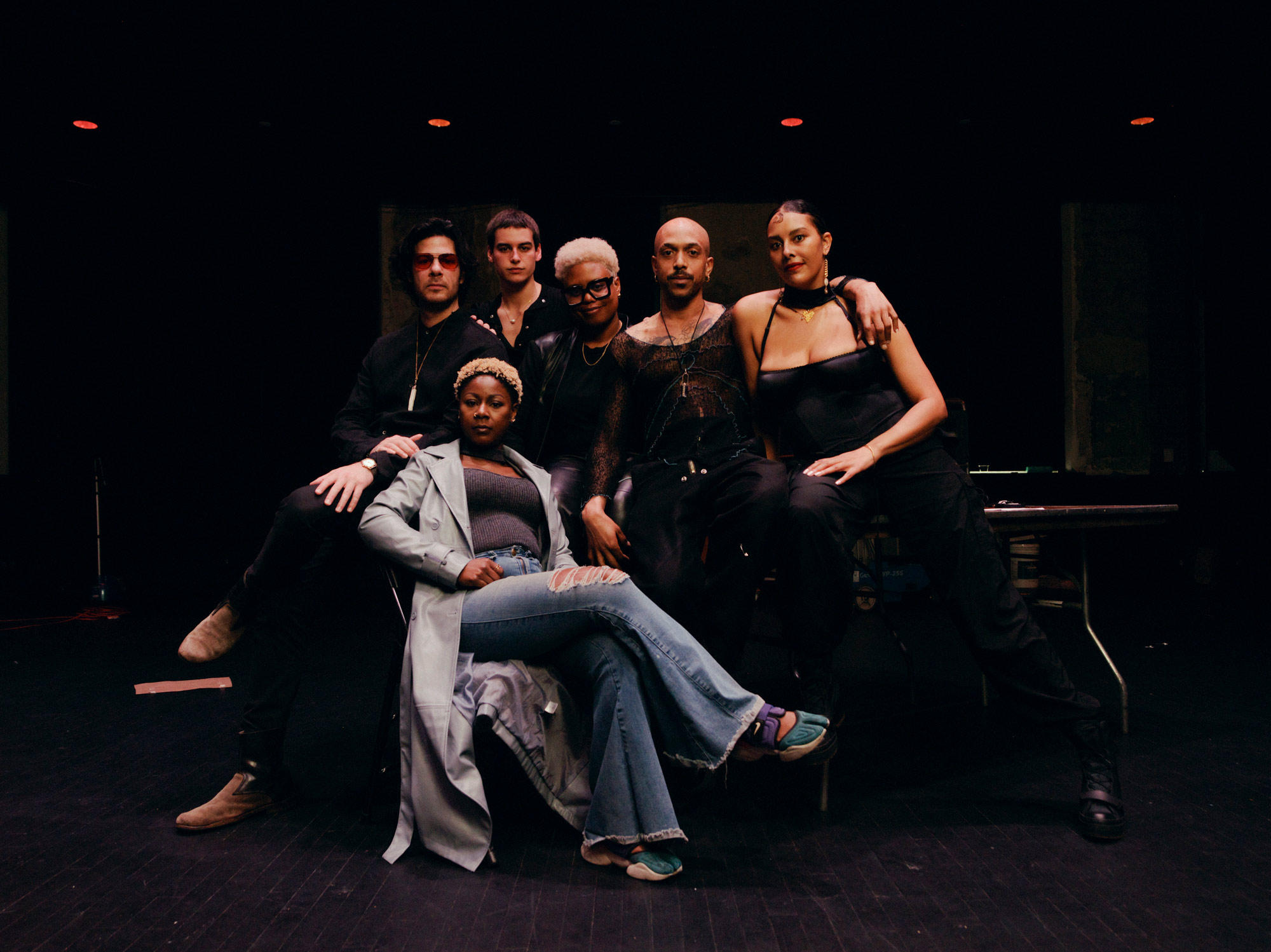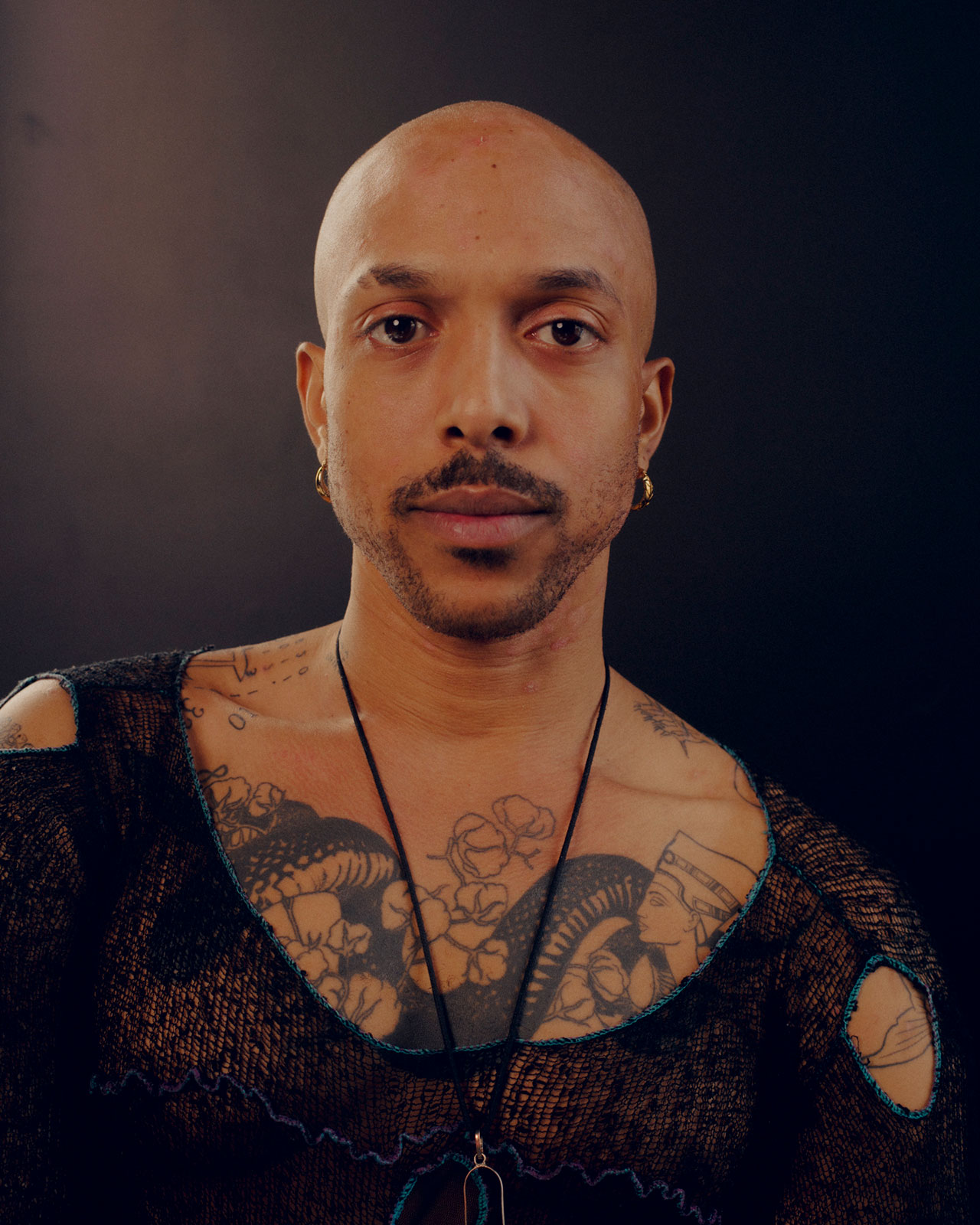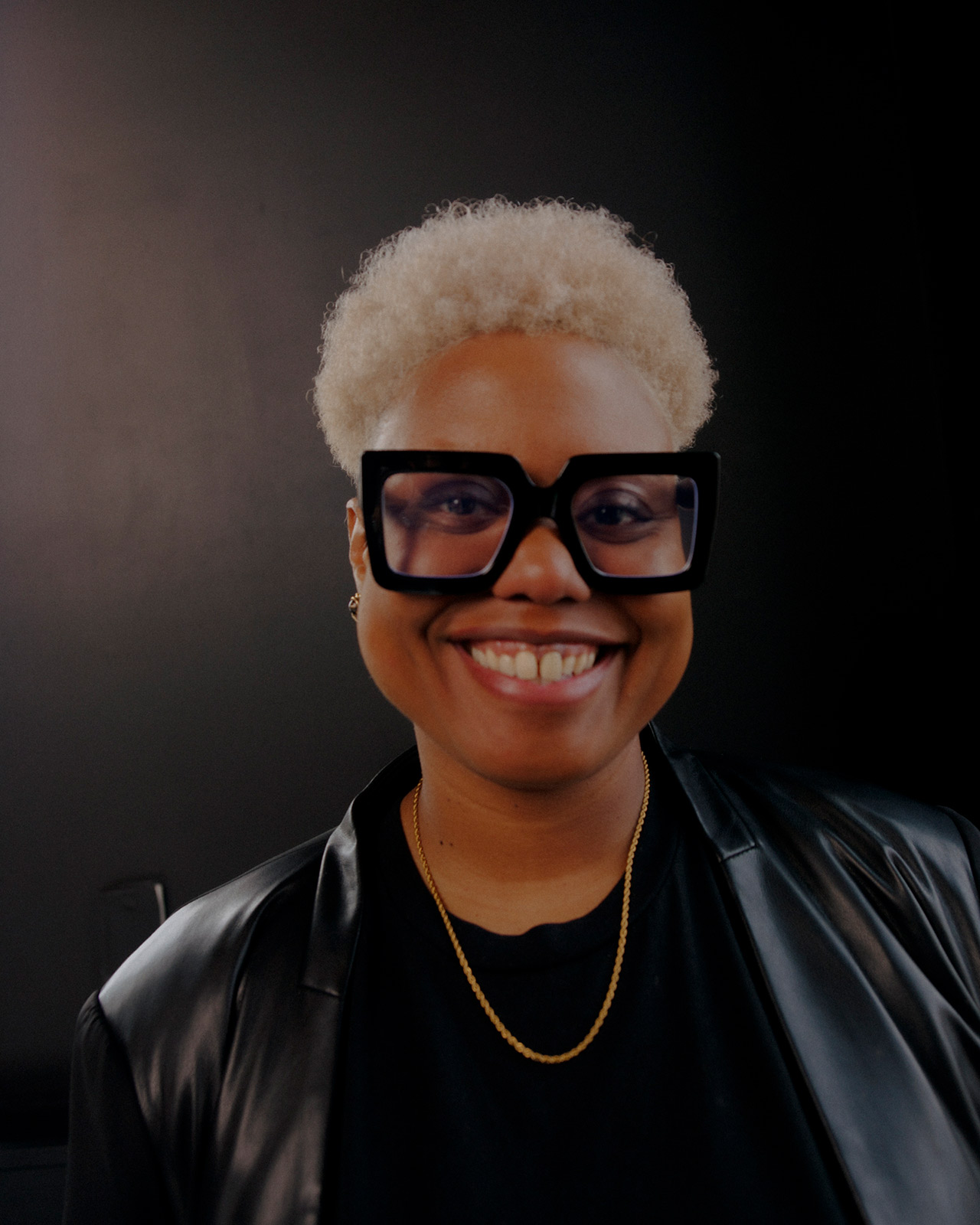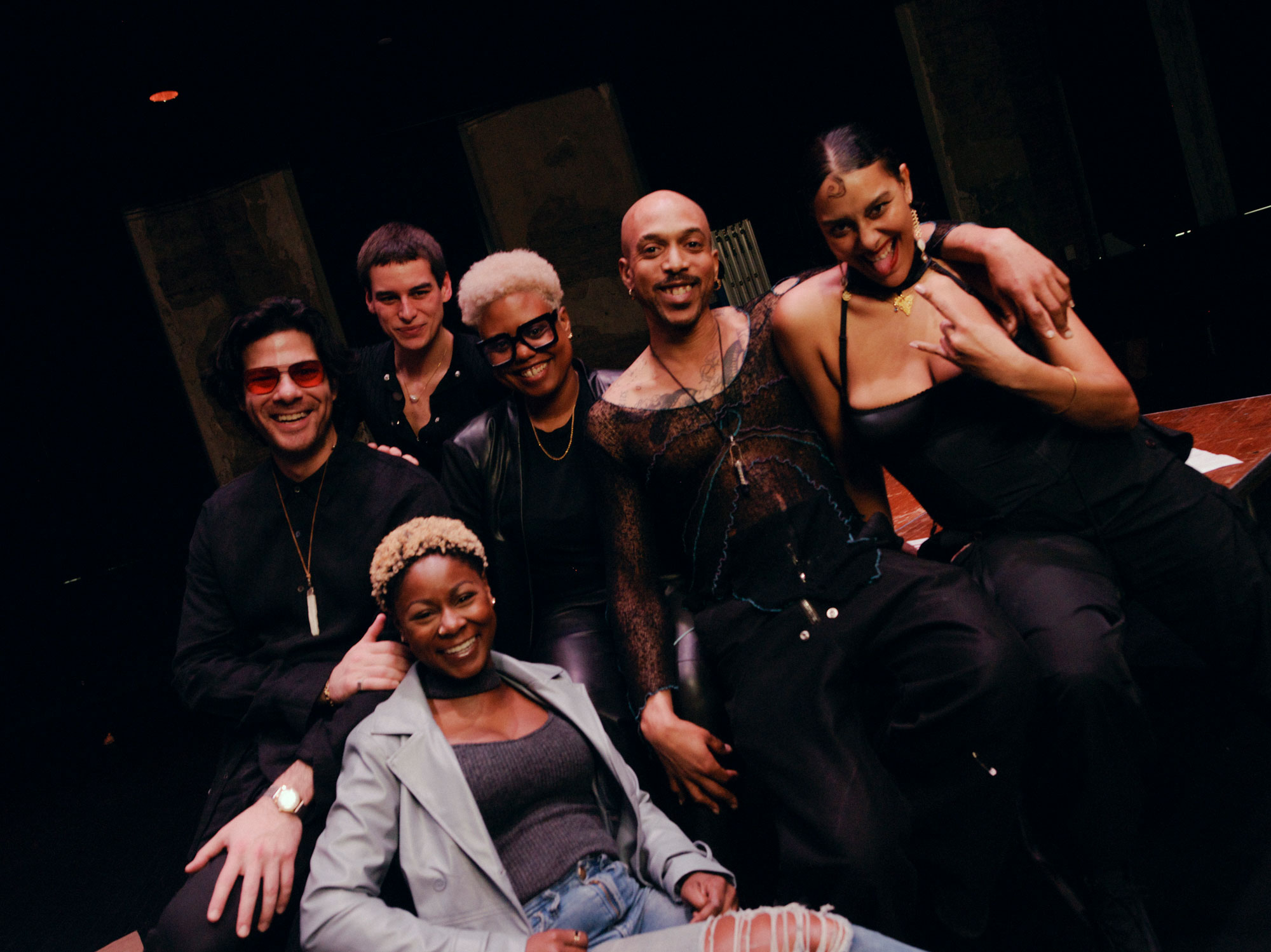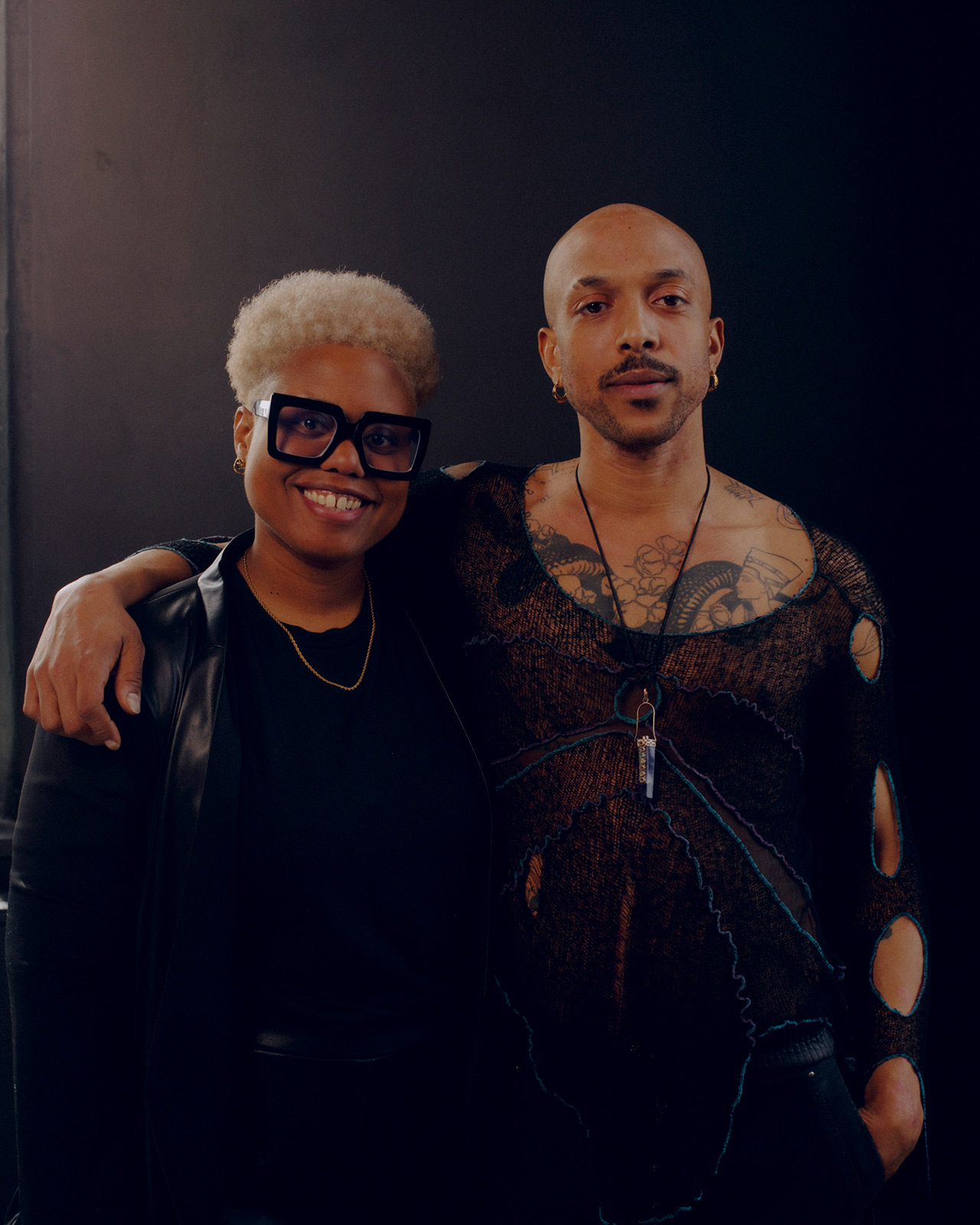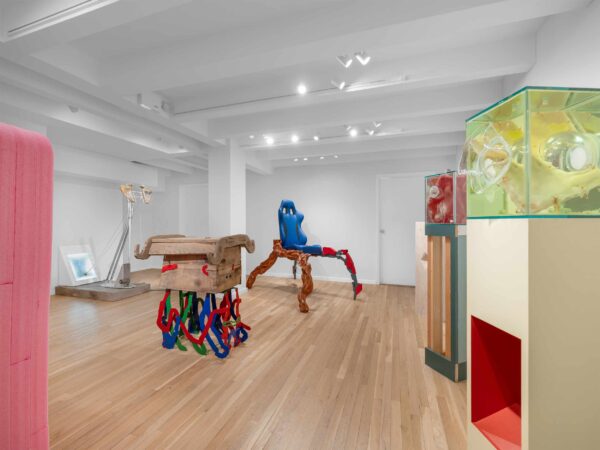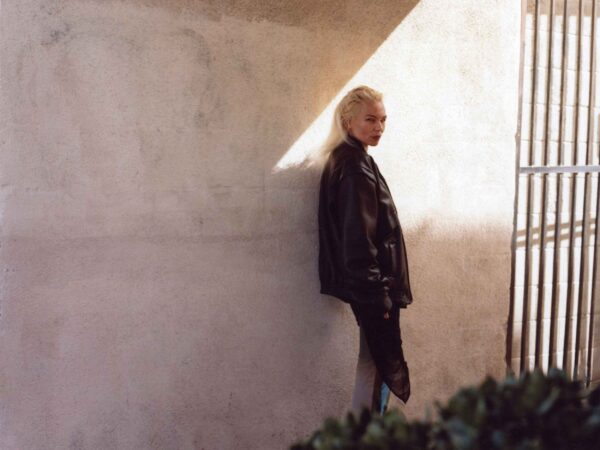In a taxi-cab tell all, the collaborators reveal how to bring fantasies into the real world
Richard Kennedy has never been easy to track down, so I’m crashing rehearsal. The doors open on the Keith Haring Theatre, and we’re immersed in the beginnings of a real-life fantasy. A bosom of curtains envelop the musicians center stage; satellite dance floors illuminate the periphery; chartreuse organza glimmers in light, shrouding a stripper pole that extends into the ceiling. The audience might not have arrived yet, but the show has already begun.
Richard is returning to creative direct the Performance Space New York Gala by popular demand, after his first jaunt with their patrons last spring. When I enter the black-box theater to try and catch him for this interview, he’s belting an incantation, draped head to toe in brown velour, clearly comfortable on the mic after the success of the Harlem Renaissance fever dream he brought to Performance Space for last year’s gala. Rashonda Reeves—his longtime collaborator and a virtuosic pianist—carries the melody with a soft precision, nodding to her own bittersweet notes. The two are in lockstep alongside their cavalcade of talent filling in the blanks with careful strings and reckless harmonies. Rashonda was the anchor at last year’s gala, and a fixture in the operatic world they’ve built over the past 12 years.
It’s a far cry from the checkered floors and headless mannequins that furnished the ad-hoc gallery spaces across the US and Europe where the two have built their repertoire since first meeting. There’s an ease in their final refrain of the day, a sweeping anthem that epitomizes their sonic simpatico. Richard’s vibrato meanders over Rashonda’s diligent keys, despite this being their first day of rehearsal. The music stops, but before we have time to exhale, we’re all packed into a car headed to a show uptown. There’s no late seating at the Park Avenue Armory, and no time to waste.‘When at last I get to speak to Richard and Rashonda, the frantic city quiets. Anticipation gives way to excitement, and the two get lost in memories before finding their way back to the present. Their adoration for each other is as evident in their words as it is in their music.
Journey Streams: It’s always so comforting to watch you both work. After getting a glimpse of rehearsal, and the space, I’m reminded of something you said earlier, Richard, about right and wrong creative decisions.
Richard Kennedy: I feel like I’ve learned that there is no right or wrong creative decision. Sometimes it takes a series of wrong creative decisions to find the right one. I think the deeper I get into life in general, I see that a series of what some might consider ‘bad’ decisions can lead to the best decision of my life. I’m just like, really surrendering.
Rashonda reminds me that we’re in alignment and that everything is right where it should be, even if it’s not where I necessarily want it to be. I always feel 100% comfortable and the most grounded when I’m with Rashonda. I don’t feel any anxiety. And when I’m feeling stressed, I know she’ll just raise her eyebrow and I’ll realize I’m carrying. Then, two minutes later, something shifts and we click and then kind of surrender together. Suddenly we’re singing really wild songs, and I’m like, Okay, damn. This is it. Like today, it’s just started all over for us.
Rashonda Reeves: I always know that when I start something, it may not sound how I initially think it will be or should be, but I find it’s about releasing that thought and just having a little more patience and a little more trust. You can see when people become more confident in what they do. They’re bringing themselves into the ensemble. And then Richard gives these amazing pep talks every time that always set me at ease. It’s like, If Richard’s smiling, we got it.
Richard: Oh, I’m already getting emotional. Each of you inspires me and makes me want to keep dreaming. It’s really about creating a situation where we all just get to hang out, and be with each other.
Journey: You seem to be constantly creating these situations for yourselves, and for us. How has your collaboration with each other evolved over the past 12 years?
Rashonda: I’ve always played by ear, but I play a lot by reading. I came to New York wanting to expand upon that, but also become more comfortable as a player, as a keyboardist, and be able to listen and go with people. I think that’s the early training I got with Richard. I got to break out of this music school box, and explore ideas that just built over time. From just three of us to these huge casts, we’re always learning how to feel and listen for each other and breathe together. I think that has been the most rewarding thing over the years, and it just continues to grow. So I’m never nervous when Richard’s around. I always know, it’s gonna just lock in like a puzzle piece.
Journey: Where do you feel like the music starts for you both? I know, you compose a lot of original work, and it’s somewhat narrative.
Richard: Sometimes I’m just insane, and the music will hit me at the best time. But then sometimes I’m like: I really, really do not need to have this really sad song hit me in the middle of my day. I just send Rashonda voice notes sometimes. But yesterday, we were both lying on the floor singing. And it just wasn’t it, it kept not being it. We were trying to find a new song. And then she just started playing that vamp you just heard us rehearse. I immediately knew that this was the vibe.
Rashonda: It’s been about having that trust that it’s gonna come, and not getting frustrated if it’s not perfect or how you perceive it to be. When you get out of your head and into your heart and just listen for the sake of listening, you stop thinking, What can I do here? I think it happens very naturally. The voice notes are extremely helpful because I’ll hear things and I can hear ideas that might be in Richard’s head, and I start hearing things layer on top and build up underneath.
Richard: It’s a conversation, always. Yesterday, we started with an idea and I just kept trying to make it happen and the universe was just like, This ain’t the song, or you know, maybe this song is like a dead song that I’ve been trying to make happen for like five years, and it just still hasn’t clicked. I was like, Why am I being so stuck to this? Let’s just change the vibe. We don’t need to recreate a song that already exists. We have so many songs in the vault. Sometimes I’ll suggest we revisit this song that we haven’t seen in like, ten years. But, I don’t think that… Oh, Rashonda, remind me to try ‘Take Care’ when we start tomorrow.
Journey: I love that we’re only days away from the show and there’s still so much time to experiment. I want to talk about the gala, but I only have one question, really: What is it giving?
Richard: Psychedelica. Never in a million years—well, never say never—would I write a theme park or a cruise ship show, but this is close. I knew I wanted it to be disco adjacent, disco energy. Bundle, not kundle. But still there’s, like, a kundle twist. It’s got to be a little sideways. Disco was so bundled out, but I’m like, Wait, how do we submerge this? But rather than it being water, it’s like a thick, oily substance. How are you moving through that? It’s giving psychedelic disco. East Harlem 1969 to 1980, where you’re just hearing the music on the street on a Saturday night in the Heights. It’s afters at Halston’s, where everybody’s just really glamorous, smoking cigarettes.
Rashonda: It’s not something everybody’s gonna get to see. It feels important, and it feels special. I’m ready for all that smoke. I’m ready for the visuals. I’m ready for people’s faces to drop, like last time.
Journey: Right, this is your second collaboration at Performance Space this year, and the second year Richard has helmed their annual gala. What I love about the work is that you always involve familiar faces. Every performance feels like it’s part of the same world. Is this a sequel of sorts?
Richard: It’s a totally different energy from last year. It’s more in the pocket. We really have nothing to prove at this point. And I think that last year was more a pedal-to-the-metal energy where it was the first time that we had named ourselves as an ensemble. This year we’re just being people again, performers. We feel really secure and at home at Performance Space. I’m so grateful to them for having us back, and shout out to you for being patient and coming uptown with us, but we should probably go find our seats for this show.


